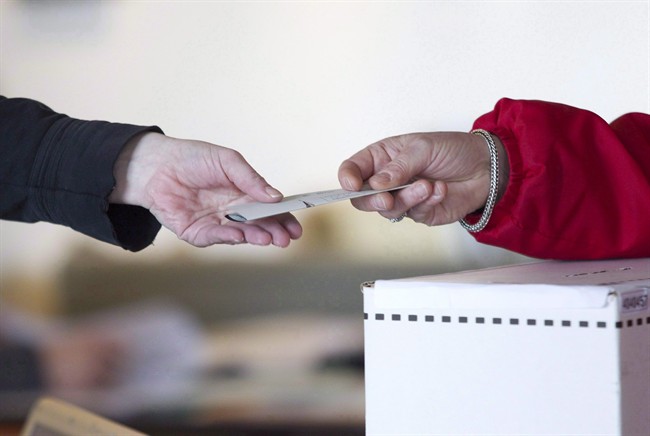HIGH RIVER, Alta. – The federal Conservatives’ foothold on Alberta held firm on Monday, with maybe just a toe slipping off the perch in the riding of Fort McMurray-Athabasca.

The Tories won both that northern riding and the southern constituency of Macleod in federal byelections, but bolstered by three visits from party leader Justin Trudeau, the Liberals gained significant ground in the oilsands capital.
With about 80 per cent of the polls reporting, Conservative candidate David Yurdiga was declared winner over Liberal Kyle Harrietha, with Yurdiga taking nearly 48 per cent of the votes to Harrietha’s 34 per cent.
That was more than triple the votes cast for the Liberals back in 2011, when Yurdiga’s predecessor, Brian Jean, won the riding with nearly 72 per cent of the vote and the NDP came in second.
In the southern Albera riding of Macleod, John Barlow officially made the move from newspaper editor to professional politician with an easy victory over his closest competitor, Liberal Dustin Fuller.
READ MORE: Liberals take Scarborough-Agincourt in federal byelection
“We wanted to make sure we did well. Not just win but we wanted to make sure we had a strong result,” said Barlow, 42, who waited just 30 minutes after the polls closed to deliver his victory speech to about 100 cheering supporters.
“We worked pretty hard and wanted to send a message that Macleod is still a very strong Conservative riding.”
- Canadian man dies during Texas Ironman event. His widow wants answers as to why
- ‘Shock and disbelief’ after Manitoba school trustee’s Indigenous comments
- Canadian food banks are on the brink: ‘This is not a sustainable situation’
- Invasive strep: ‘Don’t wait’ to seek care, N.S. woman warns on long road to recovery
Barlow, who as a provincial Tory came within 2,000 votes of beating Wildrose Leader Danielle Smith in Alberta’s last election, realizes he will have to go through the entire process again in the general election next year.
“I knew eight months ago that this was going to be step one and we’ll be doing this all over again pretty soon but I’m going to savour tonight first,” said Barlow.
“This is step one. We got through it. It’s horrible to have sports cliches but it really was one period at a time. We focused on this and we will focus on the next election now when the time comes.”
READ MORE: Liberals claim key win in Toronto’s Trinity-Spadina
The byelection became necessary when Ted Menzies, former minister of state for finance, stepped down last November.
“That’s the heart of Tory territory and it was the one seat that was guaranteed to be a cakewalk,” said David Taras, a political scientist from Mount Royal University.
“This seat was as safe as it gets.”
Barlow said the message he received at the door is constituents are worried about being forgotten after last year’s devastating flooding.
“They want an advocate. They want someone in Ottawa at the table with the prime minister making sure that we’re not forgotten here. That’s the biggest concern,” Barlow said.
“They’re worried that we got through this spring and the rest of Canada’s going to think that everything’s okay here. Those of us who live here and who lived through last year we know that’s not the case.”
In Fort McMurray, where Jean stepped down in January so he could spend more time with his family, Trudeau appeared to convince at least some voters that the Harper government has taken the oilsands city for granted by promising to treat the area “like real communities, not just work camps.”
However, Taras said at the end of the day it is as Tory blue as any other part of the province.
READ MORE: Canada Day 2014 is a great for long weekends, but bad for byelection turnout
“There’s always been this weird sense in Fort McMurray that with so many people from so many parts of Canada, especially with people who come with traditions of voting for the New Democrats or the Liberals, that Fort Mac would be different,” he said.
“I think the reality is people who come from other parts of Canada either tend to become Albertans ideologically and identity with the Conservatives or they don’t vote so the traditions of back home have no significance.”



Comments